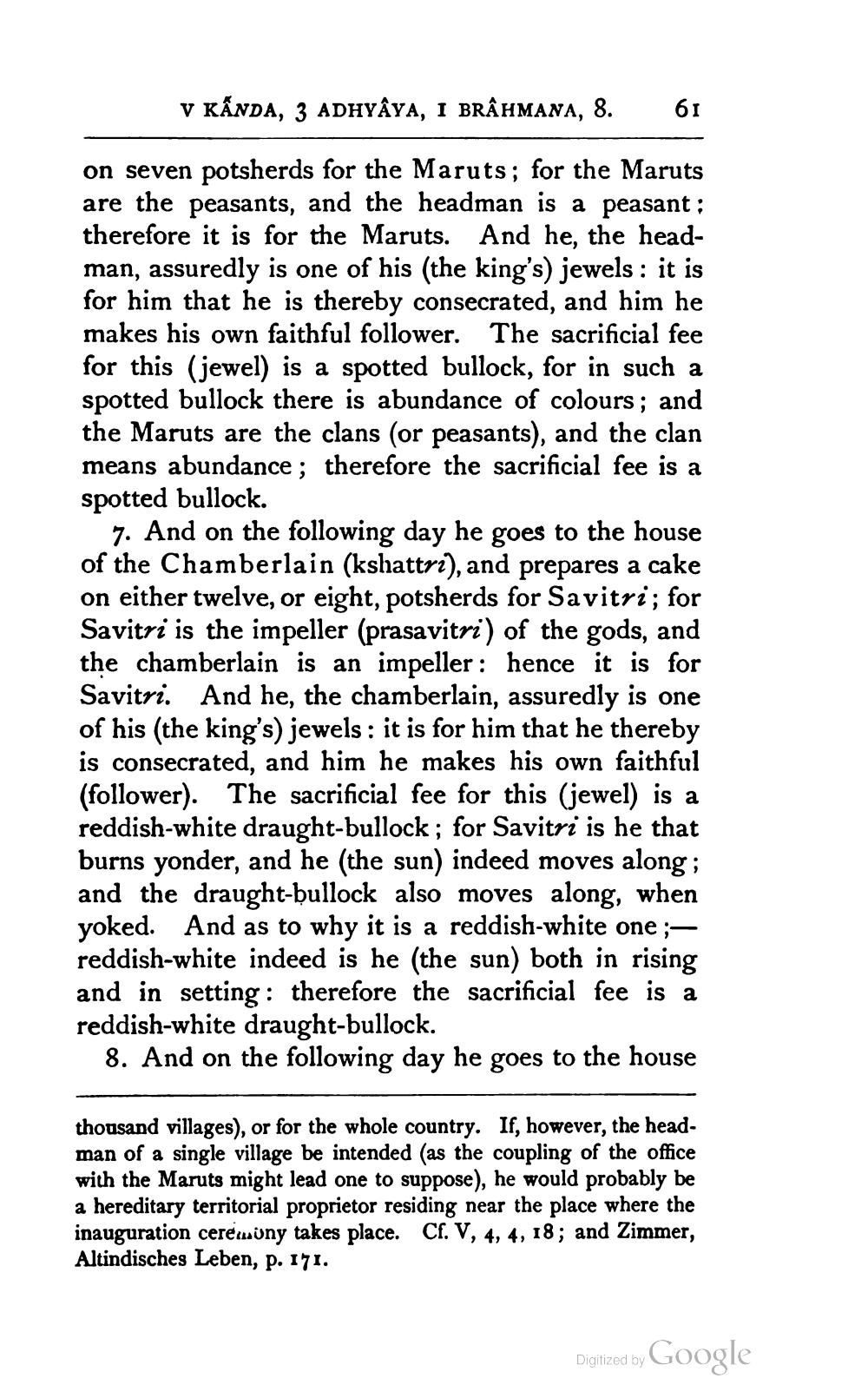________________
V KẤNDA, 3 ADHYÂYA, I BRÂHMANA, 8.
61
on seven potsherds for the Maruts; for the Maruts are the peasants, and the headman is a peasant ; therefore it is for the Maruts. And he, the headman, assuredly is one of his (the king's) jewels : it is for him that he is thereby consecrated, and him he makes his own faithful follower. The sacrificial fee for this (jewel) is a spotted bullock, for in such a spotted bullock there is abundance of colours; and the Maruts are the clans (or peasants), and the clan means abundance; therefore the sacrificial fee is a spotted bullock.
7. And on the following day he goes to the house of the Chamberlain (kshattri), and prepares a cake on either twelve, or eight, potsherds for Savitri; for Savitri is the impeller (prasavitri) of the gods, and the chamberlain is an impeller: hence it is for Savitri. And he, the chamberlain, assuredly is one of his (the king's) jewels: it is for him that he thereby is consecrated, and him he makes his own faithful (follower). The sacrificial fee for this (jewel) is a reddish-white draught-bullock; for Savitri is he that burns yonder, and he (the sun) indeed moves along; and the draught-bullock also moves along, when yoked. And as to why it is a reddish-white one ;reddish-white indeed is he (the sun) both in rising and in setting : therefore the sacrificial fee is a reddish-white draught-bullock.
8. And on the following day he goes to the house
thousand villages), or for the whole country. If, however, the headman of a single village be intended (as the coupling of the office with the Maruts might lead one to suppose), he would probably be a hereditary territorial proprietor residing near the place where the inauguration ceremony takes place. Cf. V, 4, 4, 18; and Zimmer, Altindisches Leben, p. 171.
Digitized by Google




